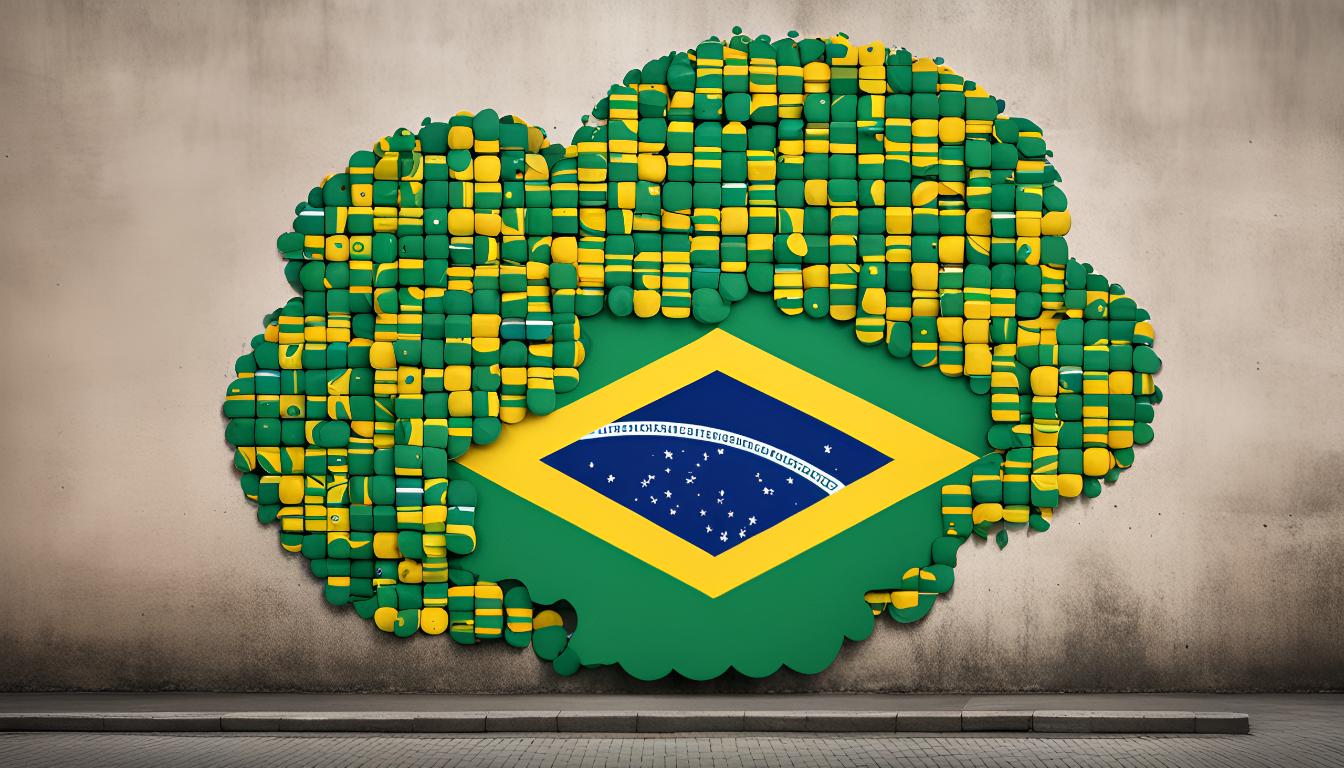Call for Participation
This roundtable fosters dialogue about the current state of digital methods for Internet research in Brazil. We seek to celebrate emerging research practices and kick off a Global South network, situating them within a transitional methodological moment in which digital methods and methodologies have been built with, in and about AI, web platforms and data visualisation. This roundtable does not provide an exhaustive overview of digital methods in Brazil. Instead, it focuses on approaches specifically developed within the Brazilian context, offering unique perspectives on the field. 🇧🇷
✏️Confirm your participation here. If you join us online, we will email you the link.
🔗You are welcome to join the Digital Methods Global South Network by collaborating with us to map Digital Methods in Brazil (click here!) The results of this form will be displayed here and updated continuously 🤓.
Join us in person or online! ✨👩🏻💻❣️
What Digital Methods are we talking about?
The digital methods we discuss are known as a means to repurpose the functioning of dominant web platforms, search engines and online data for social research. Also, considering the technicity of AI and computational medium, these methods invite researchers to (re) think and create new ways of designing and implementing research methods. Digital Methods have been used to advance social media research, media and OSINT studies, and digital investigation.
Digital methods are crucially situated in the technological environments they utilise and build on: the web environments, data, technologies and practices, and software for data curation, analysis and visualisation. In this sense, designing and implementing digital methods integrates i) the technical aspects of web environments, technologies, objects, and AI but also respects ii) online (sub) cultures of use while iii) actively and critically engaging with capturing, analysis and visualisation software in their own language. These pillars not only inform, (re)shape and add new layers of meaning to the object of study but also form the epistemological foundation of knowledge central to digital methods.
A hybrid round-table at King’s College London
This hybrid round table will discuss the current status of digital methods research in Brazil and what one can understand as “methods” when advancing research with the web as a methodological landscape. Rather than defining an exhaustive landscape of the practice, it aims to open up discussions about the role of digital methods in humanities and social sciences and their broad societal impact from a Brazilian perspective. What are the emerging creative methods developed in Brazil that leverage the web, its technologies and data to address research questions starting online/offline? Which digital methods are being implemented, and what for? What are their relevance and broader implications for studying digital media and culture in the country? Who is developing digital methods and research software? How are Brazil’s gender and race-diverse perspectives advancing the field?
In this celebrative encounter, panellists will discuss: a mapping of initiatives and labs across five Brazilian regions within this context, the convergences and possibilities of connecting digital methods with traditional (Digital) Media and Communication Studies schools, and the history of software development for digital methods research in Brazil and its challenges.
A quick-and-dirty Historical Context of Digital Methods in Brazil
⚠️ Spoiler Alert: This is a simplified and brief overview rather than a comprehensive introduction to digital methods and their historical context in Brazil.
In early 2011, three women started the first steps of digital methods in Brazil with the book “Métodos de Pesquisa para Internet” (2011), published by Sulina in Porto Alegre, Brazilian South Region. Suely Fragoso, Raquel Recuero and Adriana Amaral introduce methodological approaches that account for the Internet as an object of research (the subject being studied), a research environment (the setting where research is conducted) and a research instrument (e.g., a tool for data collection on a specific topic). Examples are network visualisation using online data, hyperlinks and ethnographic analysis for internet studies. In 2012, Fernanda Bruno founded the MediaLab.UFRJ at the Federal University of Rio de Janeiro (UFRJ), Brazilian Southeast Region. Based in the School of Communication, the lab focuses on techno-politics, subjectivities, and visibilities, using digital methods for data analysis and visualisation in the humanities.
In 2013, in the “golden” era of Facebook, Twitter and Instagram APIs, research labs such as Labic in Espirito Santo advanced digital methods for social media research to monitor and study the 2013 protests in Brazil, also known as June Journeys. This series of nationwide demonstrations claimed to stop corruption and improve public services, among other grievances. The lab, constituted by a multidisciplinary team of coordinators, has significantly contributed to the growth of digital methods in Brazil by showing the impact and relevance of repurposing web data and technologies in a societal context. The book “A Comunicação das Coisas: Teoria Ator-Rede e Cibercultura” (2013) by André Lemos became an early influence on the methodological thinking that emphasises the agency of media and their mediations in shaping digital phenomena. Lemos’ research lab LAB404 (founded in 2006) at the Federal University of Bahia (UFBA), Brazilian Northeast Region, and work, drawing from Science and Technology Studies (STS), while being characterised by a conceptual framework, his advocacy for addressing the technical affordances of media in communication studies laid foundational groundwork aligned with the principles of digital methods and their development in Brazil.
In 2016, the data journalism Coda.BR event in São Paulo emerged to provide training for journalists, researchers, and data enthusiasts in Brazil, and it later became known as the Brazilian Conference on Data Journalism and Digital Methods. Everton Zanella Alvarenga, then-executive director of Open Knowledge Brazil, and journalists Natália Mazotte and Marco Túlio Pires, were instrumental in implementing the project in Brazil. In the same year, the Brazilian Institute of Research and Data Analysis (IBPAD) and the Getulio Vargas Foundation (FGV) played pivotal roles in advancing digital methods in Brazil. The former is by offering courses and publications covering techniques for monitoring and researching social media. The latter is through the Department of Public Policy Analysis (DAPP Lab), which developed methodologies to meet academic needs and produced reports to serve the public through multidisciplinary research. In 2017, the Advanced Studies Center on Digital Democracy (CEADD) of UFBA became the central laboratory of the National Institute of Science and Technology for Digital Democracy (INCT.DD). This initiative has focused on understanding how media and networks shape political and social phenomena, such as the rise of the far-right, misinformation, and electoral campaigns.
In 2019, Métodos Digitais: Teoria-Prática-Crítica (2019), edited by Janna Joceli Omena, marks the launch of the first book in Portuguese on digital methods, gathering seminal and original texts authored by key Brazilians and International researchers in the field. The book addresses digital methods from a theoretical, practical, and critical perspective and has been adopted by several Brazilian universities to introduce these methods. Since 2019, research groups and labs have been established in the country, including the principles and practice of digital methods. For instance, the R-EST research group of the Federal University of Minas Gerais (UFMG), under Carlos D’Andrea’s coordination, investigates how digital platforms mediate political and social interactions.
Programme
Opening 14:00 – 14:15
Welcome & What digital methods are we talking about?
Janna Joceli Omena (in person)
This opening statement unpacks digital methods from conceptual and practical perspectives. It will focus on how the practice of digital methods enables researchers to conduct digital fieldwork and gain a deeper understanding of their study topic through the lens of three distinct yet interconnected pillars: (i) platform grammatisation, (ii) online (sub)cultures of use, and (iii) the affordances and limitations of computational media necessary for implementing the method.
📣🕸️🙋🏻Please join this Miroboard (https://bit.ly/Metodos-Digitais-Brasil-Miroboard) to introduce yourself and ask questions throughout the talks.
📣🇧🇷 👩🏻💻 You are welcome to contribute and be part of the Digital Methods Global South Network by filling out the form Mapeando Métodos Digitais no Brasil.
15m Interventions
14:15 – 14:30
Mapping research groups and labs developing digital methods across five Brazilian Regions: North, Northeast, Central-West, Southeast, South
Alan Angeluci (in person)
This presentation shares the findings of a bibliometric study that identifies Brazilian researchers and institutions from all five regions of the country who have published scientific works employing or focused on digital methods.
14:30 – 14:45
Digital Methods and Schools of (Digital) Media and Communication Studies: Convergencies and Possibilities in Brazil
Elias Bitencourt (online)
This talk briefly revisits key research schools and agendas within the field of media and communication studies in Brazil that have created favourable conditions for the emergence of initiatives focused on the research and development of digital methods in the country.
14:45 – 15:00
A brief history of software development for digital methods research in Brazil
Giulia Tucci (online)
This talk explores tools and methodologies developed in Brazil that are (or could be) used in digital methods research, highlighting innovative practices and localized contributions. Examining key projects and software initiatives showcases Brazil’s role in advancing digital research techniques and fostering interdisciplinary collaboration.
Tea break
15:00 – 15:15
Discussant Commentary and Q&A Panellists
15:15 – 15:30
Critical commentary and insights
Richard Rogers (in person)
15:30 – 15:40
Q&A Panelists
📣You can join this Miroboard to ask questions 🙋🏿♀️🙋🏻🙋🏽♂️
Short link: https://bit.ly/Metodos-Digitais-Brasil-Miroboard
Collective Discussion
15:40 – 16:15
Dialogue, Connection & Collective Discussion
Thais Lobo, Janna Joceli Omena (in person)
This moment fosters dialogue about the current state of digital methods for Internet research in Brazil. We will use a shared document to promote dialogue, networking, and the launch of a Global South network.
📣You can join this Miroboard to engage in collective discussion and networking ✨
Short link: https://bit.ly/Metodos-Digitais-Brasil-Miroboard
Meet the Guest Speakers
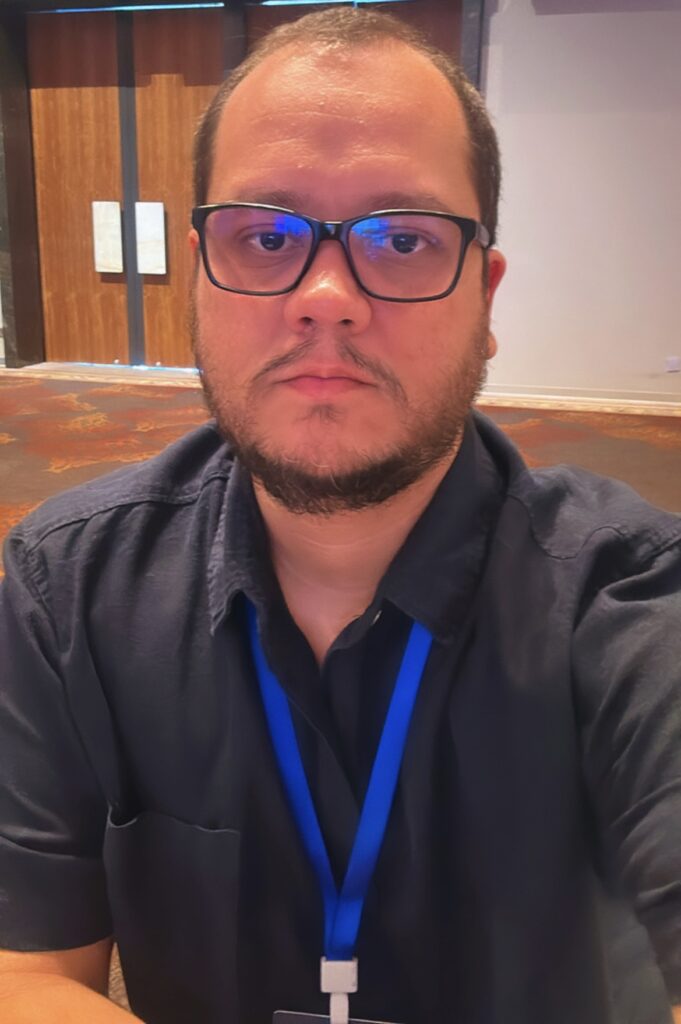
Alan Angeluci
Alan is a Productivity Research Fellow (PQ-2) of the National Council for Scientific and Technological Development (CNPq). Senior Lecturer at the Department of Information and Culture, School of Communications and Arts, University of São Paulo (ECA/USP), and at the Graduate Programs in Information Science and Communication Sciences (PPGCI and PPGCOM ECA/USP). Leader of the Smart Media and Users Research Group (SMU/CNPq) (smartmediausers.org). Conducted postdoctoral studies at ECA/USP and the University of Texas at Austin, USA. Holds a PhD from the Polytechnic School of USP, with a doctoral exchange period at the University of Brighton, England. Earned a Master’s and Bachelor’s degree from the Faculty of Architecture, Arts, Communication, and Design at São Paulo State University (UNESP). Main areas of teaching, research, and outreach include Data Visualisation, Digital Methods, Information and Communication Technologies (ICT), Digital Culture, and Human-Computer Interaction (HCI).
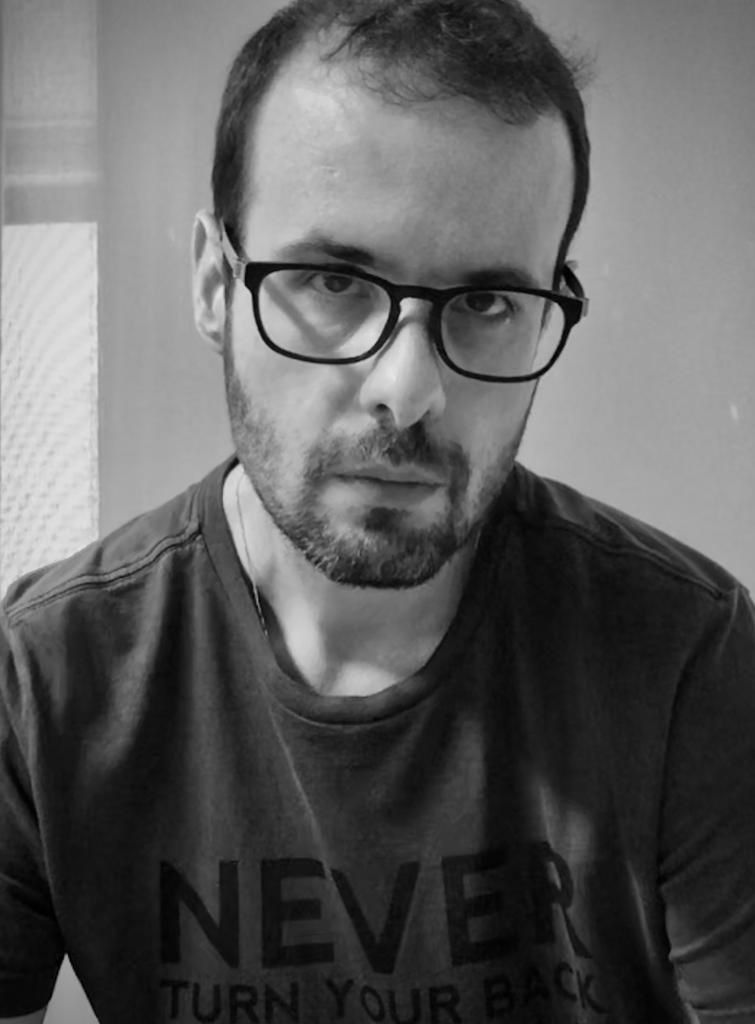
Elias Bitencourt
Elias is an Associate Professor in the Design Undergraduate Program at the State University of Bahia (UNEB), with a Ph.D. in Communication from FACOM/UFBA and a Master’s in Culture and Society from IHAC/UFBA. Visiting researcher at the Milieux Institute in Canada in 2019. Lead of Datalab/Design (CNPq) at UNEB, a research and development lab dedicated to data visualization and digital methodologies. Research interests include data visualization, digital methods, platform studies, digital imaginaries, and the social impacts of algorithmic mediation. Background in Design, Applied Social Sciences, Information Science, Digital Humanities, STS, Digital Methods.
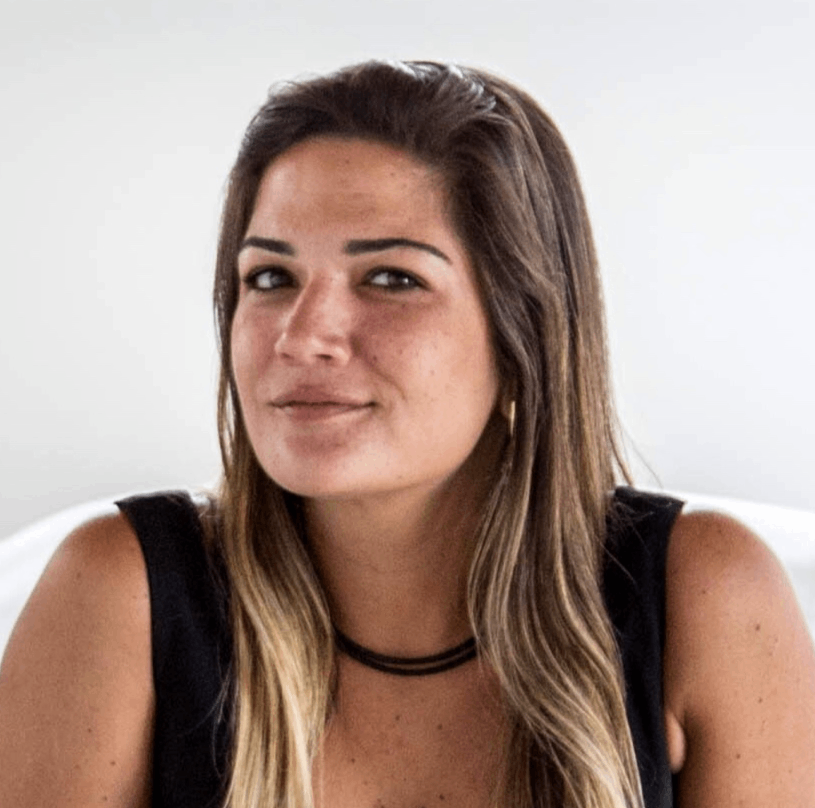
Giulia Tucci
Giulia Tucci has a Ph.D. in Information Sciences (2023) from the Brazilian Institute of Information in Science and Technology (IBICT) and the School of Communication at the Federal University of Rio de Janeiro (UFRJ). She has a master’s degree in Biomedical Engineering from COPPE/UFRJ (2011) and a bachelor’s degree in Chemical Engineering from PUC-Rio (2006). Since 2017, she has focused her studies on the information flow on digital platforms. Her doctoral research investigated the flow of information (and disinformation) on Telegram during the 2022 electoral campaign in Brazil. Her expertise spans computational social sciences, political studies, and digital methods. Currently, she is a postdoctoral researcher in a joint program between IBICT and UFRJ, as well as a visiting researcher at the Alliance of Bioversity International and CIAT, contributing to the CGIAR FOCUS Climate Security program.
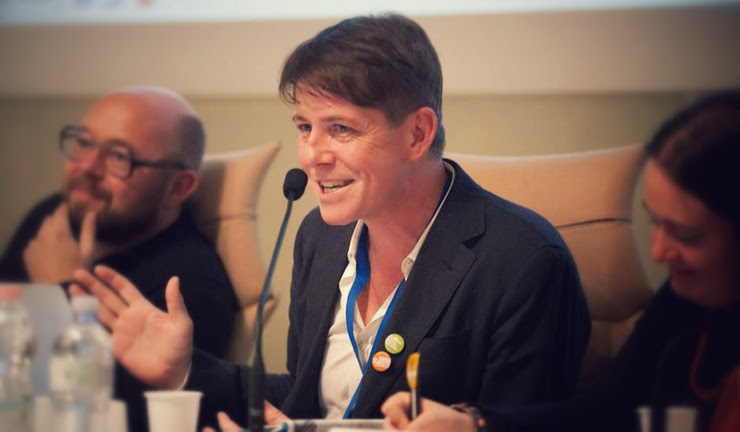
Richard Rogers
Richard Rogers is Professor of New Media and Digital Culture, Media Studies and Director of the Digital Methods Initiative, Humanities Labs, University of Amsterdam. He is author of Information Politics on the Web, Digital Methods (both MIT Press) as well as Doing Digital Methods (Sage).
Meet the Moderators
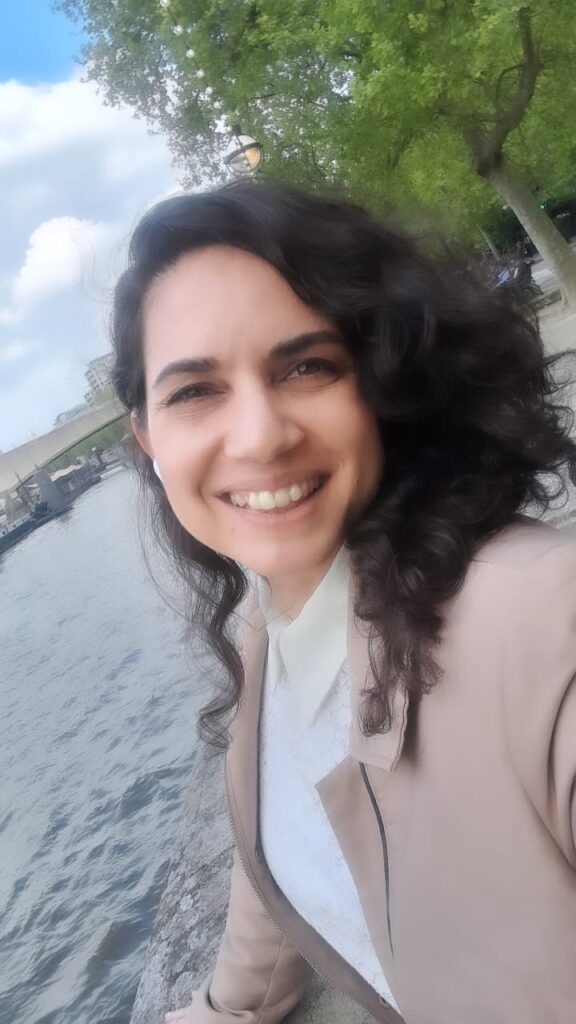
Janna Joceli Omena
Janna is from Northeast Brazil, Pernambuco, Recife, and has a PhD in Digital Media from NOVA University Lisbon. She is the author of Métodos Digitais: Teoria-Prática-Crítica (2019), the first edited collection on digital methods in Portuguese, bringing together seminal and original texts. In Lisbon, Portugal, she founded the SMART Data Sprint (2016-2023), an initiative that provided a platform for teaching and developing digital methods, benefiting hundreds of participants and collaborators. She is a Digital Methods Lecturer (Assistant Professor) at King’s College London. Janna’s work focuses on understanding the epistemological dimensions of AI, web technologies, digital objects, and research software in designing and implementing methods and their role in research and knowledge production. Her research explores the practice and theory of digital methods, where she investigates the technicity of computational media from conceptual, technical, and empirical perspectives. She applies this knowledge to develop accessible and reproducible methodologies, supporting collaborations that build research software for analysing visual media content and online data.
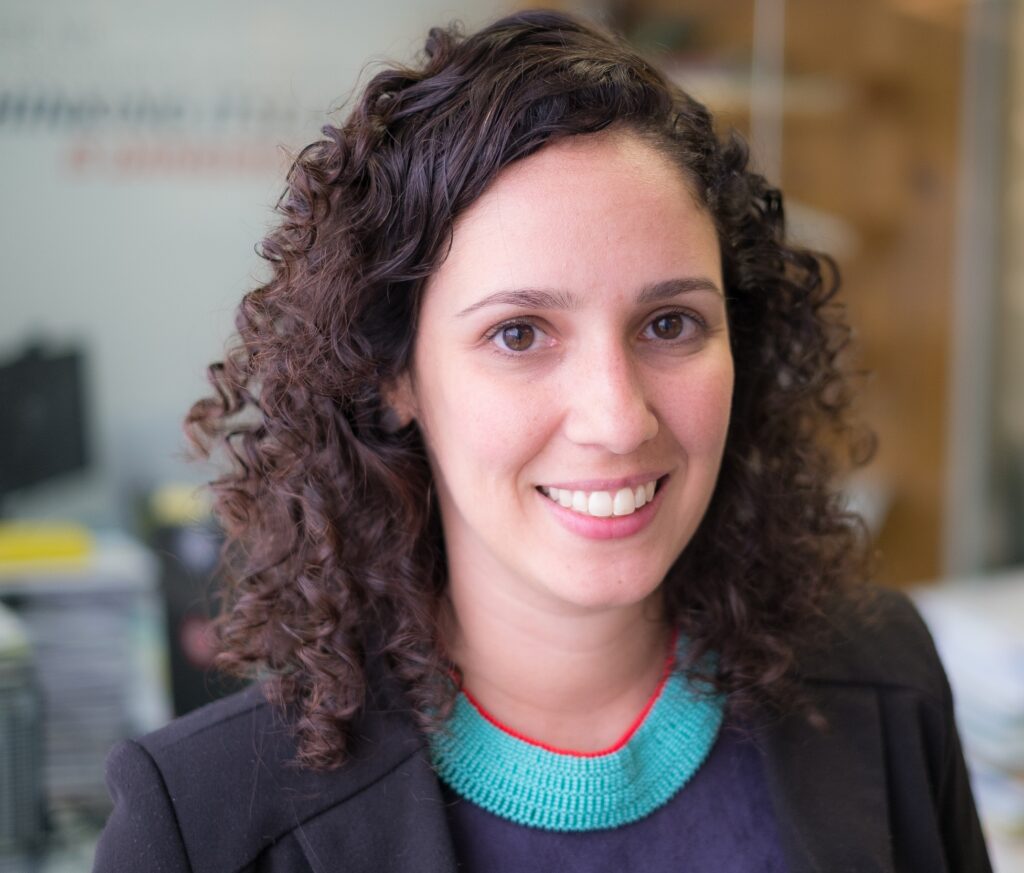
Thais Lobo
Thais Lobo holds an MA in Digital Humanities from King’s College London and is currently engaged in ERC-funded research projects within the Departments of Digital Humanities and War Studies (Digisilk and Security Flows, respectively). As a media researcher and practitioner, she combines data analysis and research outreach to disseminate critical insights into digital platforms and online cultures. She has applied digital methods to explore social issues like health disinformation, political bots, greenwashing, climate change denial, datafication and digital surveillance in interdisciplinary projects collaborating with external organisations in the UK. Her experience includes roles in the media and research fields in Brazil.
Contact
Janna Joceli Omena, J.J.Omena@kcl.ac.uk
Thais Lobo, thais.matias@kcl.ac.uk
Acknowledgements
Janna Joceli Omena led the ideation of the event and authored this page, with contributions from Thais Lobo, Elias Bitencourt, Giulia Tucci and Alan Angelluci to the overall discussion and editorial work, bringing their experience on the Brazilian academic landscape. Bitencourt has also contributed to the section A Quick-and-Dirty Historical Context of Digital Methods in Brazil. Many thanks to Charlotte and Iryna for providing event logistics support, and special thanks to Jonathan Gray and Liliana Bounegru for their support in making this event possible.
